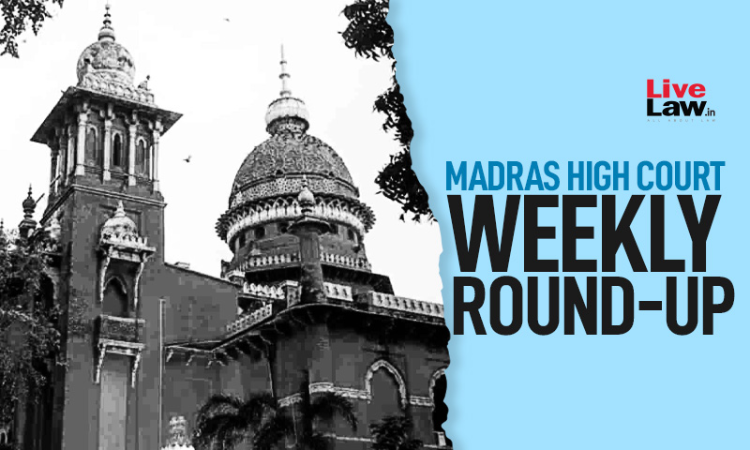Next Story
9 Jan 2022 8:12 PM IST
A weekly round-up of important cases from Madras High Court, subordinate courts and NGT (Southern Zone).1. Status Quo In Religious Demography Has To Be Maintained; Religious Conversion Can't Be A Group Agenda: Madras High Court Case Title: Fr P. George Ponniah v. The Inspector of Police Citation: 2022 LiveLaw (Mad) 6 While refusing to quash an FIR registered against the...

